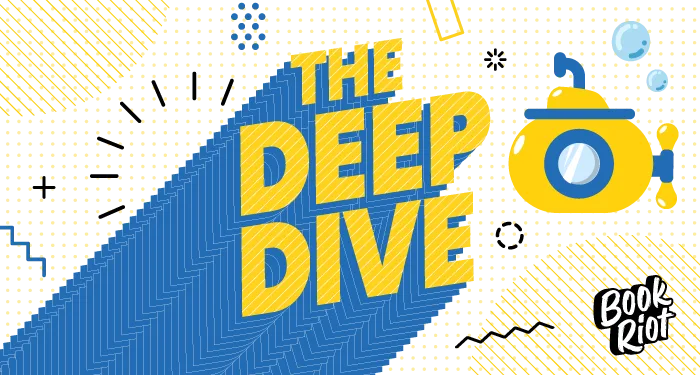As we stood on the slow line to enter the secure zone around the United Center in Chicago, an angry preacher thrust his sign toward us: “How can ye escape the damnation of Hell?” He probably did not realize how apt this question was. Just a month earlier, before Joe Biden announced that he would not, after all, seek a second term, America was hurtling unstoppably toward the Hell of another Trump presidency, and the Democrats deserved to be damned for their seeming inability to do anything about it. Now, with extraordinary rapidity, impending doom had given way to the ecstasy of release. The whole convention was an answer to the preacher’s question: “here’s how.”
All week I kept having the thought that the whole event felt like one of those movies where the wrongly incarcerated prisoner, so long trapped in miserable gloom, emerges blinking into the light, dazzled and amazed. And then, on the last night, the image became real as Al Sharpton brought onstage four members of the Central Park Five, who as teenagers in 1989 were wrongly convicted for a notorious assault on a female jogger. Donald Trump had paid for a full-page ad in The New York Times demanding the return of the death penalty. Now Yusef Salaam, currently a member of the New York City Council, stood in the glaring lights of the arena and uttered the famous words of Martin Luther King Jr.: “Free at last, thank God almighty we are free at last.”
It was the prayer that echoed through a convention whose soundtrack was Beyoncé’s “Freedom.” What could not quite be said was that in part the Democrats were celebrating their release from the contract of loyalty to their own still-serving president, a man for whom they feel such obvious affection, respect, and gratitude. Alongside the giddy jamboree in Chicago, there was also a shadow convention, the one for which the vast majority of the delegates had in fact been chosen in the primaries that seem so long ago now, the one in which they are all trying to put on a brave face, the one in which they are going through the motions of fake optimism to announce Biden as their candidate for November.
It was an inchoate awareness of this parallel universe that gave the real convention its undercurrent of strangeness. The Democrats are in power, but they have not felt in control. Most of them did not know quite how to acknowledge this in Chicago. When your guy has been in the Oval Office for nearly four years, you’re supposed to say that everything is looking good—and, as many speakers did point out, Biden’s administration has some huge achievements to claim. But this obligatory optimism was clouded in trepidation: Biden, were he running, would lose, and everything he had done would soon be undone by Trump. No serving politician acknowledged this in Chicago. It took three people who are not now, or never were, in office to articulate the otherwise nameless fear.
Bill Clinton invited his listeners to “Just think what a burden it’s been on us to get up day after day after day after day, buried in [Trump’s] meaningless hot rhetoric.” Michelle Obama, in the most electrifying speech of the convention, confessed that “I am realizing that, until recently, I have mourned the dimming of…hope. And maybe you’ve experienced the same feelings, that deep pit in my stomach, a palpable sense of dread about the future.” And Stevie Wonder, before he performed “Higher Ground,” told the audience that “our hearts have been beaten and broken.” Buried in meaninglessness, dread in the deep pit of the stomach, hearts beaten and broken—this is not the usual rhetoric of a party that, after all, won the last election and has been governing with considerable success.
But of course this is not a usual juncture in American politics. It was in these stray moments that an obvious truth was given expression: the joy that radiated through and from the United Center was the other side of what had been so recently a deep despair. In a fine speech on the third night, Pete Buttigieg said, “I just don’t believe that America today is in the market for darkness.” But he must have known that progressives were in the market for darkness only a few weeks ago, until Biden made his decision and the party coalesced so decisively behind Kamala Harris.
Thus the Democrats in Chicago were singing a redemption song. It had three parts: valediction, malediction, and benediction. They managed most of the time to harmonize them without too much dissonance. This was no mean feat.
*
For Biden’s valediction, the culmination of the first night, they came both to praise their president and to bury him. This was a living funeral, in which everyone got to express their love for the politically deceased while also making sure that he was well and truly consigned to the party’s afterlife. The convention was populated with past presidents, either in person (Clinton, Barack Obama) or through their bloodlines: Jason Carter spoke for his grandfather Jimmy and Jack Schlossberg for his grandfather John F. Kennedy. There was even a fleeting early appearance (in his role as cochair of the Credentials Committee) of James Roosevelt, grandson of Franklin and Eleanor. The eerie feeling beneath all the heartfelt chants of “Thank you, Joe” was that Biden, whether he liked it or not, was being beamed up into this higher echelon of Democratic history, dematerialized as a current presence and rematerialized as a revered memory.
This maneuver was managed with remarkable agility. It is not easy simultaneously to express deep love for someone and enormous relief that this same person is leaving your life. But it helped that both the affection for Biden and the appreciation for his administration’s achievements were, so far as I could tell from conversations with delegates, almost universal. It was particularly striking that Biden, who spent almost all of his career as a centrist, is now most admired by the progressives who form the core of the party’s activist base. Even the considerable anger many of them feel toward his weak stance on the Gaza war has not diminished their belief that he has been a strong ally on economic issues. (It’s notable that Bernie Sanders and Alexandria Ocasio-Cortez, in their platform speeches, confined themselves to very short remarks on Gaza.)
It helped, paradoxically, that Biden seemed vigorous and spoke strongly, even while being openly resigned to the reality that it was age, not failure, that had defeated him. He was able to function well enough to make that acknowledgment into a sign of strength rather than weakness. He could, at last, act his age. “I know,” he said, “more foreign leaders by their first names, and know them well, than anybody alive just because I’m so damn old.” He found some comfort in the nice circularity of the question of age in his political career: “I either have been too young to be in the Senate because I wasn’t thirty yet, and too old to stay as president.” In those last six words, he gave the Democrats permission to revel in their relief at his decision to depart. He made clear that he was not holding their exuberance against them—which in turn increased their gratitude.
*
The malediction was, on the face of it, much more straightforward—bad-mouthing Trump at a Democratic convention is not that hard. Yet it too had its complications. Just as the Democrats had to navigate between loving Joe and giving him a jubilant cheerio, they had to figure out how to manage another contradictory feat: cutting Trump down to size while retaining a clear sense of the threat he poses to the very existence of the American republic. Biden had defined himself so much as not-Trump that he had allowed the MAGA man to dominate and define both sides of the great divide of American politics.
Harris is seeking to escape this bind, in part by trying to reconfigure Trump as the Wizard of Oz, a little man who has conjured an illusion of MAGA magnitude. I don’t know how coordinated this strategy is, but in Chicago it was notably consistent. Even the renegade Republican Adam Kinzinger was entirely on message when he called Trump “a weak man pretending to be strong. He is a small man pretending to be big…. He puts on quite a show, but there is no real strength there.”
Barack Obama characterized Trump as a spoiled child “who has not stopped whining about his problems since he rode down his golden escalator nine years ago.” He drew shrieks of delight from the audience when he mentioned Trump’s “weird obsession with crowd sizes,” while holding his hands out to suggest a body part that was visibly small. Veronica Escobar called Trump “a small man speaking at small venues.” Michelle Obama said that “going small is petty. It’s unhealthy. And quite frankly, it’s unpresidential.” Bill Clinton shrank Trumpism all the way down to the scale of a single, isolated, solipsistic individual: “The next time you hear him, don’t count the lies—count the I’s. He’s like the tenor warming up before the opera: me, me, me, me.” J. B. Pritzker, the governor of Illinois, even melted down Trump’s money: “Take it from an actual billionaire, Trump is rich in only one thing—stupidity.”
Harris implicitly acknowledged the tension within this strategy of minimization when she said in her acceptance speech, “In many ways, Donald Trump is an unserious man. But the consequences—but the consequences of putting Donald Trump back in the White House are extremely serious.” The trick she is trying to pull off is to turn Trump from the evil ogre that looms over America into a little hobgoblin capable of unleashing some of the most destructive forces in the country. But do persuadable voters fear goblins as much as ogres?
At the convention the answer to this question lay in a very big book. To counterbalance their shrinkage of the man, the Democrats magnified the threat of his putative policies, as articulated by some of those close to him in the Heritage Foundation’s Project 2025. Each day featured performances in which a speaker carried onstage an enormously oversize volume containing the Project 2025 text and thumped it down on the lectern to emphasize its massiveness. It was presented as a wicked sorcerer’s book of spells. Mallory McMorrow, the impressive state senator from Michigan, joked that the tome weighs as much as her three-year-old child, and she got a lot of comic mileage from her struggles to handle it. This was pure agitprop theater, but it dovetailed nicely into the dual message: Trump is trivial; his agenda is monumental. How this plays with voters is yet to be seen, but perhaps its real point at the convention was not so much to curse Trump as to lift the curse he had placed on the Democrats themselves. They did a good job of convincing themselves that they are not afraid of him anymore.
*
As for benediction, the most obvious purpose of the convention was for the party to give its blessing to a candidate who did not, after all, have the mandate of victory from the primaries. The elaborate show of taking a roll-call vote, accompanied by a hyperactive DJ playing snatches of songs appropriate to each state and tens of thousands of preprogrammed wristbands flashing a million points of red-white-and-blue light around the stadium, was clearly a case of protesting too much. The absence of a normal process made it necessary to create an overinsistent simulacrum of one.
More meaningful, however, was the idea of the party giving its blessing to a radically transformed idea of demographic normality. The Democrats grasped the reality that, if their immediate task was to define Harris for voters before the Republicans get to do it, they could not do so without also redefining America itself. If Harris is the right president for the country, that country must be a very different kind of place from what it was when Trump won in 2016. It must be one in which the Black historical experience is not marginal but central, in which immigration is not a threat to American identity but rather is that identity, in which women have not just an equal voice but very specific rights to bodily autonomy, and in which entitlement to family life does not require the old credentials of heterosexual patriarchy.
One of the most extraordinary moments of the convention was a simple but immensely potent gesture made by Oprah Winfrey. She referred to previous speakers who had given testimony of their own experiences of rape and sexual abuse and of being denied appropriate medical care in pregnancy because of Republican antiabortion laws. She went on: “If you do not have autonomy over this—over this—if you cannot control when and how you choose to bring your children into this world and how they are raised and supported, there is no American dream.” The rhetoric was powerful enough, but much more so was that she pointed to her own body, the body of a Black woman, as she repeated “this.”
It is such a body that now carries the hopes of stopping Trump, and Oprah’s emphatic four-letter word was a claim on the polity that Harris can represent: this. On the opening night, the veteran Los Angeles congresswoman Maxine Waters recalled the question asked by Fannie Lou Hamer at the 1964 Democratic convention when she and her fellow Black activists from Mississippi were refused permission to be seated as delegates: “Is this America?” Waters gave her own ringing answer sixty years later: “Damn right it is.” The Democrats were pinning their hopes, once and for all, on the belief that most voters now agree.
*
This three-part redemption song was heady, even at times intoxicating. But was it, perhaps, all too harmonious? The escape from dread into joy created an atmosphere in which there was precious little room for doubt or dissent. I watched from above while, as Biden was speaking, a small group of delegates unfurled a homemade banner that said “Stop Arming Israel.” They were not interrupting the president—they were on the tiered seating at the back of the arena, and I am pretty sure he could not even have seen them from the stage. What drew the attention of the people in the rows ahead was instead a burly male delegate grabbing the banner and trying to wrench it away. In those rows the delegates did a remarkable thing, raising their poles with WE ❤️ JOE signs on them to block any possible view of the protest from the platform. At least one delegate struck a protester with his loving sign. The others waved them like magic wands that could make this unwanted apparition disappear.
This action seemed to me to be entirely spontaneous—the impulse to pretend that the little protest was not happening was instinctive. It spoke volumes of the determination that nothing should be seen to spoil the party. The moment became even weirder when Biden himself referred to the larger Gaza-related protests around the United Center and acknowledged that “those protesters out on the street, they have a point. A lot of innocent people are being killed, on both sides.” The point the protesters were making was that the US is complicit in war crimes—if this point is valid, why could no one be allowed to make it from the platform or from the convention floor? Every mention of a cease-fire in Gaza was enthusiastically cheered by the delegates—as was Harris’s expression of hope that “the Palestinian people can realize their right to dignity, security, freedom, and self-determination.” But most of those delegates seemed to want to keep the issue at this rhetorical arm’s length.
There were other prices to be paid for the euphoria of unanimity. The big message of the convention was that while the Republicans are intent on dragging America back to the past, the Democrats are relentlessly focused on the future. But the biggest force shaping that future—the climate crisis—was barely mentioned until the final night, when it got a brief slot on the program. Harris name-checked it just once in her speech, when she touched on “the freedom to breathe clean air, and drink clean water, and live free from the pollution that fuels the climate crisis.” Her charming running mate, Tim Walz, didn’t mention it at all. Perhaps the subject does not adhere to the governing idea of the convention that there should be no market for darkness—or perhaps it raises too many awkward questions about the sustainability of some aspects of the American way of life.
Likewise, the convention went very big on veterans and the armed might of the US. Harris promised, “As commander in chief, I will ensure America always has the strongest, most lethal fighting force in the world.” The words “Iraq” and “Afghanistan” cropped up many times as Democrats who had served in those wars displayed their patriotic bona fides. But there was not a single hint of an acknowledgment that the wars themselves were disasters or that there might be questions to be asked about the way America uses its lethal force. Or if any such questions were in the minds of delegates, they were drowned out in the chants of “USA! USA! USA!” that erupted with monotonous regularity. It was clear that the Democrats had decided to try to take American nationalism back from Trump and use it to balance their bold celebration of diverse identities, the exceptional and infinitely powerful “unum” formed from the teeming “pluribus” of the multicultural population. No doubts were to intrude on that mission.
The combination of joyous relief and determined unanimity may well power Harris and Walz all the way to victory in November. There is no mistaking the energy and the discipline of the convention or the way this rare combination created a controlled explosion of genuine enthusiasm. But refusing to be distracted from the single great goal of beating Trump has its dangers when many of the distractions are in fact urgent realities. The Democrats are hoping that the world beyond America will not intrude on their progress toward a genuinely historic victory. The world tends to have other ideas.





















 English (US) ·
English (US) ·